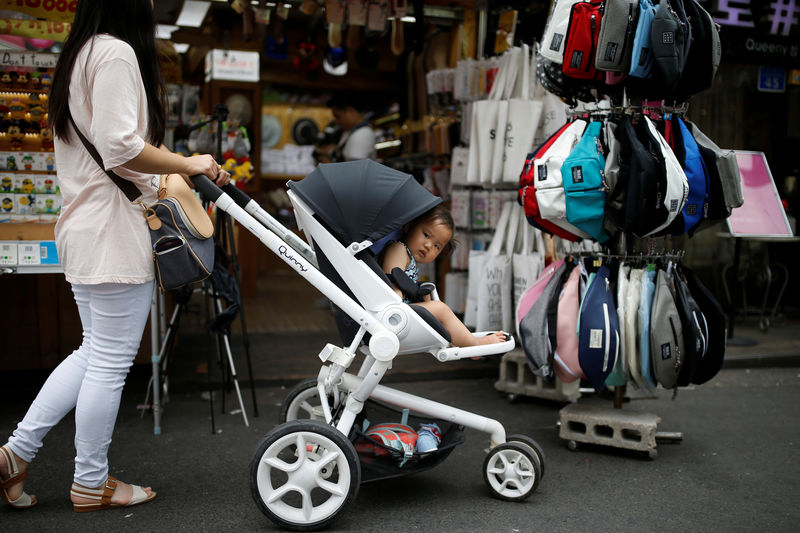By Joori Roh and Cynthia Kim
SEOUL (Reuters) - South Korea's headline inflation slowed to its weakest pace since July 2016 in March on declines in food prices and weaker service costs growth, adding pressure for policymakers to shift to an easing stance and ramp up stimulus.
The consumer price index rose 0.4 percent in March from a year earlier, Statistics Korea said on Tuesday, undershooting 0.9 percent price growth tipped in a Reuters survey.
The data adds to growing signs that Sino-U.S. trade tensions and slowing global demand are hurting sentiment in Asia's fourth largest economy, and supports money market bets that the Bank of Korea may cut interest rates for the first time in three years.
If the weakness in consumer price growth persist, the BOK may be forced to cut its inflation forecasts again at its next rate review on April 18, from current 1.4 percent for 2019.
From a month earlier, prices fell 0.2 percent, also missing the 0.35 percent increase tipped in the survey.
The inflation data comes after a recent batch of weak indicators, such as figures that showed exports contracted for a fourth month in March while February factory output shrank to a two-year low.
Core CPI, which excludes agricultural and oil-based products, rose 0.8 percent from a year ago, also slowing from 1.1 percent in February.
"Price growth in the service sector such as restaurants and travel agencies is weakening, in a sign of softer demand-side pressure," a Statistics Korea official said.
A sub-index for fresh produce costs dropped 3 percent on-year after falling 5.2 percent in February. Service costs gained 1.1 percent, slower than 1.4 percent gain a month earlier.
South Korea's central bank chief on Monday said the bank is not in a hurry to ease policy, contrary to bond market pricing, which implies the next move in BOK rates is likely to be a cut. The yield on South Korea’s three-year government bond, for example, has fallen below the 1.75 percent policy rate of since last week.
"We need to monitor further but it seems the situation doesn't warrant us to review an easing in policy interest rates now," Governor Lee Ju-yeol told reporters at a press conference in Seoul.

The BOK's current annual inflation target is at 2 percent.